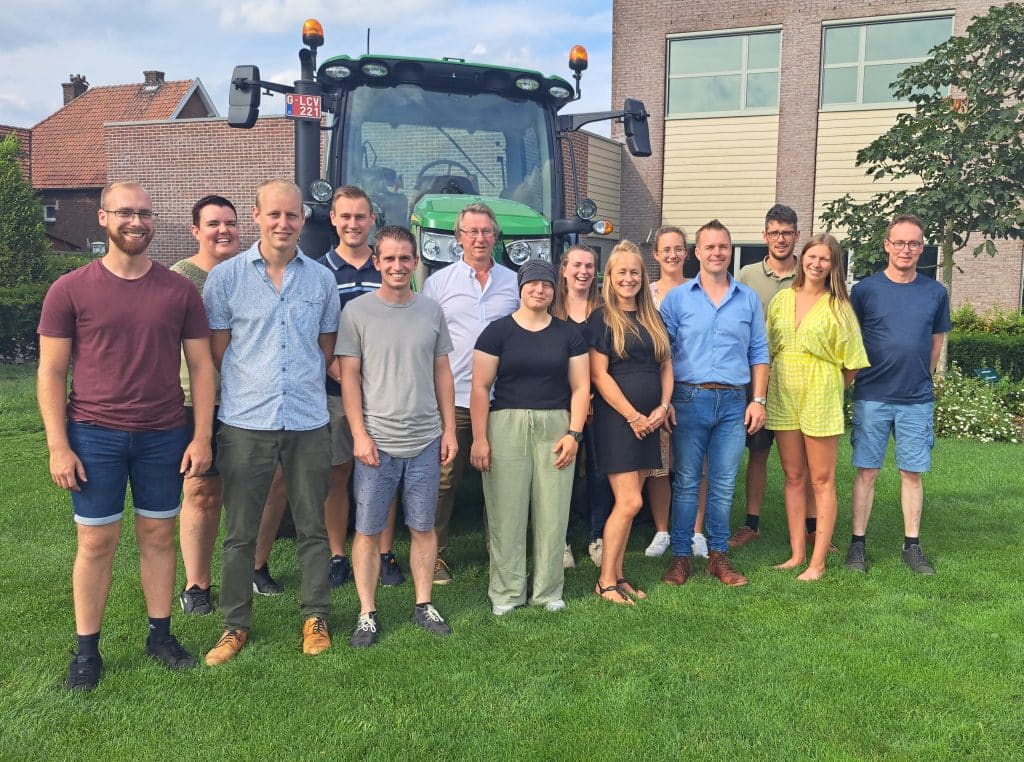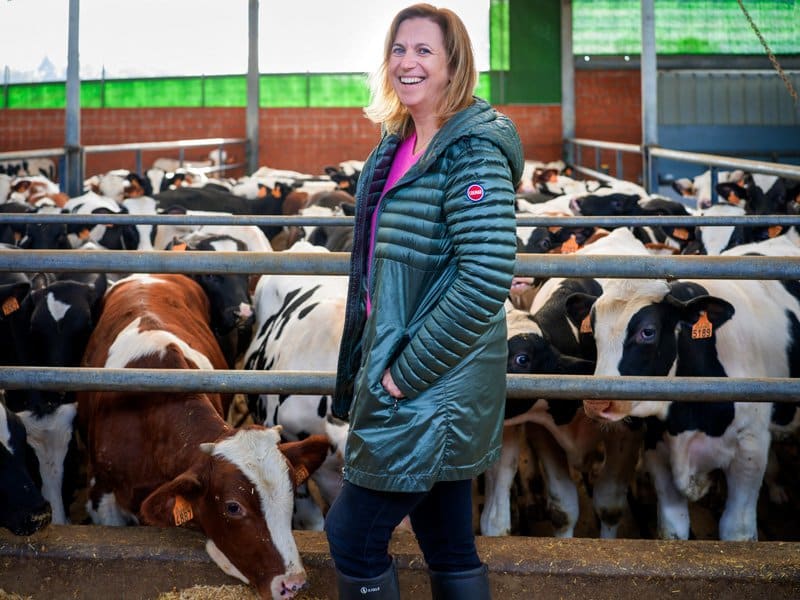Employees
Sander Palmans
Coordinator
Marijke Gijbels
Deputy coordinator and researcher crop production and B3W
Lore Luys
Researcher crop production and B3W
Planning G licence
Shana Clercx
Crop production researcher
Stef Keppens
Crop production and livestock researcher
Bart Swennen
Crop production researcher
Driving instructor G licence
Lonneke Hendriksen
Crop production researcher
Monique Schuurman
Pig farming researcher
Saskia Leplat
Pig farming researcher
Lien Baeten
Pig farming researcher
Anouk Maes
Pig farming researcher
Ellen Goorman
Technical responsible pigs, Driving instructor G licence
Stannie Sanders
Technical responsible pigs
Sven Schrooten
Driving instructor and planning G-driving licence, stagementor mechanisation and Technical in charge of crop production
Jef Gorssen
Driving instructor G-driving licence and stagementor cattle farming
Chris Mertens
Volunteer
Rob Ramaekers
School farm manager

From left to right
Back row: Lore Luys, Bart Swennen, Stannie Sanders, Monique Schuurman, Marijke Gijbels, Jef Gorssen
Front row: Stef Keppens, Sander Palmans, Chris Mertens, Ellen Goorman, Saskia Leplat, Sven Schrooten, Shana Clercx, Rob Ramaekers
Word from the chairman

Inge Moors - Deputy
Limburge agriculture and horticulture is an important economic spearhead. On about 90 000 ha of agricultural land, almost 3 000 farmers and horticulturists actively provide direct and indirect employment for 8 000 people. Food production is an essential part of the agricultural business complex and provides additional economic activities in the supply chain and in marketing and processing. Employment created throughout the chain amounts to more than 20 500 FTEs.
In terms of food production, strong livestock farming, mainly dairy cattle, pig and poultry farming, is present in the north and northeast of the province. With an annual production value of about 320 million euros, intensive livestock farming has a significant share in the total economic value of Limburg agriculture and horticulture.
In order to perpetuate and even strengthen the economic value of livestock farming, it is essential to anticipate changing market conditions, including the abolition of milk quotas, stricter sanitary requirements, new social expectations regarding animal welfare, etc. Moreover, livestock farmers are faced with additional challenges such as feed conversion and their own cultivation of fodder crops. Sustainable and innovative entrepreneurship are the best answer to ensure the future of Limburg's livestock, pig and poultry farming.
To support farmers and horticulturists in this, practice-oriented research plays a very important role. With PVL in Bocholt, Limburg has a strong practice-oriented research centre for livestock and pig farming.
Through research projects and a strong demonstration operation, Limburg livestock farmers are advised and guided in their pursuit of more sustainable and innovative agriculture and horticulture. The province of Limburg has been a structural partner of PVL for many years and will support the further development of this provincial practical centre in the future. In this way, the provincial agricultural policy makes an important contribution to maintaining and strengthening economically profitable agriculture and horticulture and to innovative and sustainable agricultural entrepreneurship in Limburg.






